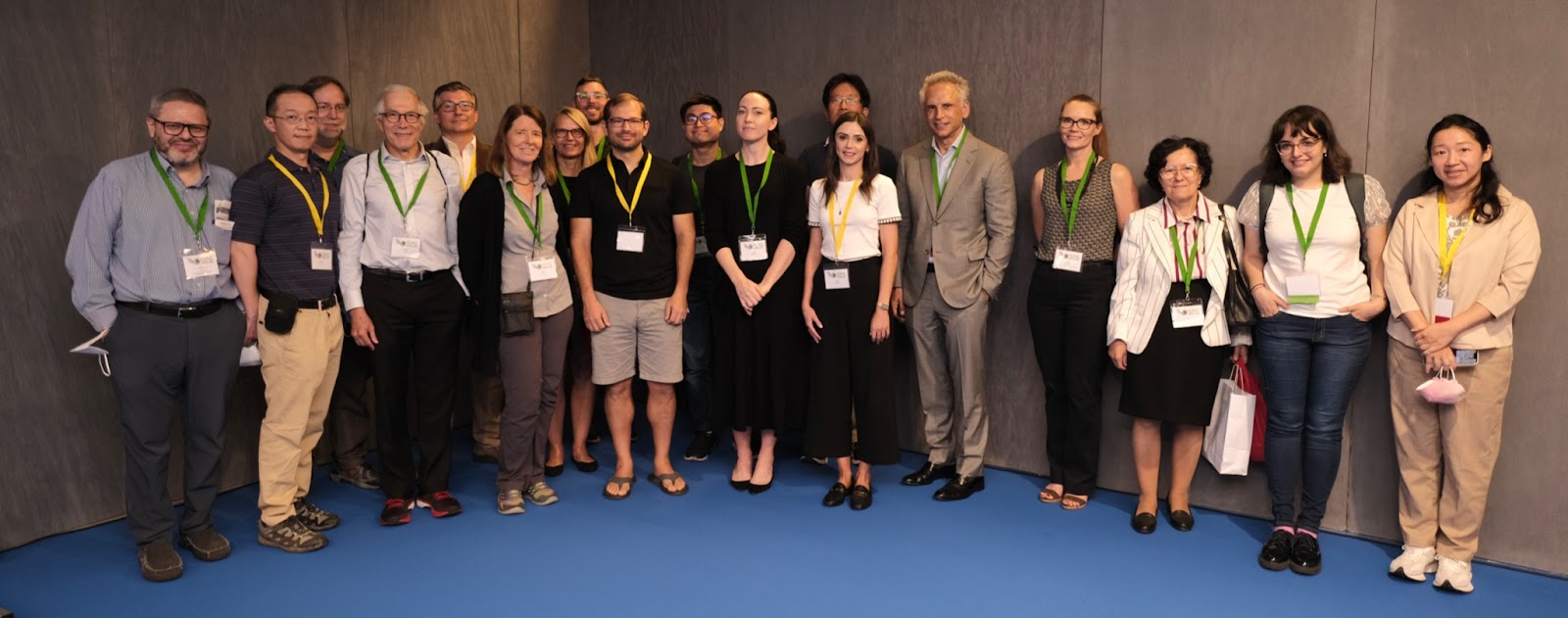Suicide Working Group Leadership
Work with us!
If you have questions regarding the PGC SUI workgroup or projects that are currently being conducted, please contact the workgroup chairs Drs. Niamh Mullins, Anna Docherty, and Douglas Ruderfer.
If you are interested in sharing genotype data (and/or summary statistics) with the PGC SUI workgroup, please complete the PGC Data Inquiry Form. If you have questions about this form, please contact the PGC SUI Data Receiving Committee Representative.
GWAS summary statistics from the International Suicide Genetics Consortium study of suicide attempt (Mullins et al., Biol Psychiatry, 2022) are available online. GWAS summary statistics from the meta-analysis of suicide attempt across both the International Suicide Genetics Consortium and Million Veteran Program studies (Docherty AR et al., Am J Psychiatry, 2023) are available through the PGC SUI Data Access Portal. If you have questions about how to access summary statistics, please contact the PGC SUI Data Access Committee Representative.
For any questions or ideas related to research dissemination (e.g., via this webpage, social media, blogs, press outlets), please contact the PGC SUI Outreach Liaisons at the following email addresses (maria.koromina@mssm.edu & emily.diblasi@hsc.utah.edu).
About Us
Our History
The Suicide Working Group has been a part of the Psychiatric Genomics Consortium since 2022. Formerly the International Suicide Genetics Consortium (ISGC), our working group includes over 280 scientists from more than 20 countries around the world. Our interdisciplinary membership ranges from distinguished faculty to junior investigators from the many academic disciplines required for this collaborative work, including statistical genetics, psychiatry, psychology, suicide epidemiology, and ethics.
Our Motivation
Suicide mortality is a global public health problem, accounting for over 700,000 deaths worldwide each year. Suicide mortality has a significant genetic component, it is polygenic, and global suicide death disproportionately occurs in low- to middle-income countries.
Non-fatal suicide attempts are estimated to occur more than 20 times for every death by suicide, and are a major source of disability, reduced quality of life, and social and economic burden.
Suicidal ideation, the contemplation of taking one’s own life, is even more common, with a cross-national lifetime prevalence of 9.2%.
Suicidal thoughts and behaviors, including suicide death, can be prevented with proper medical and mental health support and treatment. Therefore, it is critical to gain insight into the underlying biological pathways involved in suicide attempts or suicidal thoughts, to identify potential avenues to improved treatment and prevention.
Suicidal ideation, suicide attempt and suicide (collectively “suicidality”) are known to have partially genetic underpinnings. Research on twins (who share 50% or 100% of their genetic information) has observed that 30-55% of risk for suicidality can be explained by genetic factors. This means that individuals may inherit a genetic predisposition, which combined with environmental risk factors, can elevate risk.
The PGC Suicide Working Group seeks to identify which specific parts of our genetic code contribute to increasing risk of suicidality, such that biological mechanisms of risk and also appropriate interventions can be better understood.
Major Accomplishments
Latest Results
The genomics of suicidality are complex, requiring very large numbers of samples to detect meaningful effects in genome-wide association studies.
The first study by this group examined genome-wide data from 18 different cohorts and over 550,000 individuals, almost 30,000 of whom had made a suicide attempt. The results of this large-scale collaborative effort, led by Niamh Mullins, were published in 2022 in Biological Psychiatry (read here). The study found a region on chromosome 7 containing common DNA variations that increased risk for attempted suicide. The association was not better accounted for by genetic risk for depression, and was replicated through an independent analysis of suicide attempt in more than 14,000 veterans in the Million Veterans Program.
We also discovered strong genetic overlap of suicide attempt with major psychiatric and health conditions, including major depressive disorder, smoking, pain, risk-taking, sleep disturbance, and poorer general health. Genetic overlap with non-psychiatric risk factors was largely unchanged by accounting for psychiatric risks in our analyses, which suggests that a substantial component of the biological basis of suicide attempt is not simply a byproduct of psychiatric illness.
The group has since led a larger study of almost one million individuals (40,000 cases), incorporating five ancestral groups and data from 35 countries. New genetic discoveries from this study, led by Anna Docherty (read here), include genetic risks across multiple ancestral groups, compare genetic associations observed in attempt vs. death populations, and suggest similar common variant genetic architecture of suicidality across civilian and military populations.
This ongoing, international research brings us a step closer to understanding the neurobiology of suicidality. The ultimate goal of our research is to gain insight into biological risk for suicidality, in order to identify optimal intervention and prevention strategies.
Resources
Suicide is preventable with proper medical and mental health support and treatment. If you are in crisis, help is available. Here are resources for help.
Publications
Docherty et al., GWAS Meta-Analysis of Suicide Attempt: Identification of 12 Genome-Wide Significant Loci and Implication of Genetic Risks for Specific Health Factors. Am J Psychiatry. 2023 PMID: 3777785.
Kimbrel NA. et al., A genome-wide association study of suicide attempts in the million veterans program identifies evidence of pan-ancestry and ancestry-specific risk loci. Mol Psychiatry. 2022 PMID: 35347246.
Mullins N et al., Dissecting the Shared Genetic Architecture of Suicide Attempt, Psychiatric Disorders, and Known Risk Factors. Biol Psychiatry. 2022 PMID: 34861974.
Docherty AR et al., Genome-Wide Association Study of Suicide Death and Polygenic Prediction of Clinical Antecedents. Am J Psychiatry. 2020 PMID: 32998551.
Mullins N et al., GWAS of Suicide Attempt in Psychiatric Disorders and Association With Major Depression Polygenic Risk Scores. Am J Psychiatry. 2019 PMID: 31164008.
Ruderfer DM et al., Significant shared heritability underlies suicide attempt and clinically predicted probability of attempting suicide. Mol Psychiatry. 2020 PMID: 30610202.
Funders
National Institute of Mental Health R01MH132733, R01MH123619, R01MH134284











